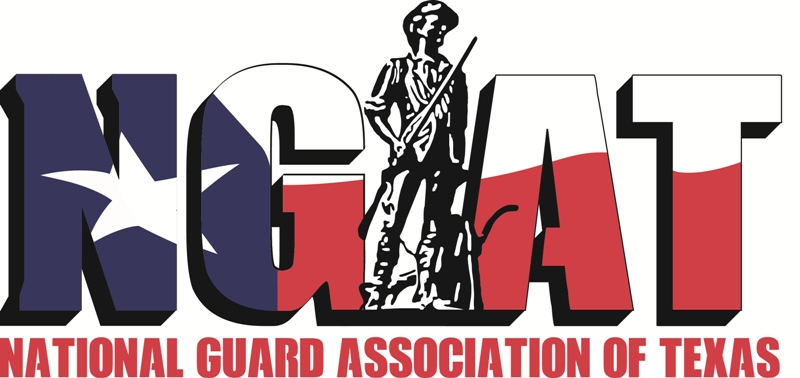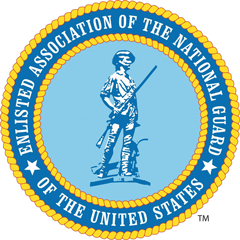Problems related to the Army National Guard Recruiting Assistance Program (G-RAP) resulted in the largest criminal investigation in the US Army to date. However, the results of the investigation do not justify the means. On Sunday, May 22, 2016, CBS aired a story on its 60 Minutes news program regarding G-RAP problems and the investigation. Unfortunately, the EANGUS National Office feels that CBS omitted relevant facts and reported counterfactual information.
For instance, there were 106,364 registered representatives of the program (“recruiting assistants, or RAs”), not 105,000. There was no mention of Document and Packaging Brokers Inc., also known as Docupak, the prime contractor for the program, and employer of the recruiting assistants. It is important viewers understand that these 106,364 individuals were not performing National Guard duty—they were employed by Docupak.
Since the recruiting assistants were contractors, Army Criminal Investigative Division (CID) agents had no authority or jurisdiction. [Neither do they have jurisdiction over National Guard members in state status, such as on drill weekends. Jurisdiction of National Guard members in state status resides with each state’s Adjutant General, none of which were interviewed in the story.]
The 60 minutes episode stated that the National Guard did not have any internal controls for the program, even though the program was administered by Docupak, not the National Guard. Nor did it make mention of any internal controls the Army National Guard and Docupak had in place for the G-RAP program employees, the RAs. Oversight of National Guard contracts (such as Docupak’s) in each state resides with the United States Property and Fiscal Officer, an active duty officer, yet none of them were interviewed in the story. Congressional testimony confirmed that internal controls were, indeed, in place.
During a Congressional Hearing before the Senate Homeland Security and Government Affairs Committee on February 4, 2014, testimony stated that thousands of recruiting assistants committed fraud. However, with 106,364 recruiting assistants who worked the program, only 1,219 recruiting assistants were investigated by Task Force Raptor, 80 were found guilty and only 60 are still under investigation. The CID cleared over 105,000 recruiting assistants of wrongdoing as of May 22, 2016.
CBS stated that CID spent $27.9 million on Task Force Raptor which employed 60 agents. Independent estimates are that the Army has spent in excess of $40 million (they don’t reveal exact costs) and some allege costs as high as $58 million, and congressional testimony said that Task Force Raptor employed 200 personnel.
According to CBS, the Army testified to Congress that the fraud committed could total $95 million, and that $10.2 million has already been identified. To date, the investigation has surfaced only $2.3 million—which we admit is a lot of fraud but nowhere near what the Army testified to in Congress or what 60 Minutes reported.
The 60 Minutes program included two interviews with Lieutenant Generals from the active Army, but interviewed no one from any state National Guard, Army National Guard Directorate in Arlington Virginia, or National Guard Bureau. The two Lieutenant Generals interviewed were uninvolved with the three recruiting incentive programs run by the Army during the time frame in question: G-RAP, Every Soldier a Recruiter (ESAR), and the Army Reserve Recruiting Assistance Program (AR-RAP). LTG Claude Vaughn (USA, ret.) was the only senior National Guard leader mentioned (not interviewed) in the show, but he retired in 2009 and had nothing to do with the G-RAP program from that point forward.
The 60 Minutes story made no mention that CID and the Army purposefully withheld disclosure of their investigation from National Guard leaders.
60 Minutes said Master Sergeant Jerry Wilson had been given a letter of reprimand from The Adjutant General of Colorado. This is a misrepresentation of the facts; the document used as an exhibit in the story was from the Commander, Troop Command, a subordinate command under The Adjutant General—another irregularity in reporting the story.
Unfortunately, the success of the program was omitted altogether. The Army Guard end strength grew from 2005 through 2012. Furthermore, the Army Guard employed fewer full-time recruiters because of the efforts of the recruiting assistants, who brought in over 150,000 new recruits with a 92% successful ship rate to basic training, during a critical juncture in the prosecution of the war. At a time where the cost of finding new recruits was $18,327 for the Army, G-RAP reduced that cost to $2,400, a savings of $15,927 multiplied times 150,000, totaling $2.39 billion. With a contract cost of $338 million and a savings of $2.39 billion, we’d say that the G-RAP program was highly successful.
Docupak informed CID of issues with fraud in 2007, but CID chose not to investigate until 2012. Indeed, despite reports of fraudulent activity, the Secretary of the Army did not cancel the recruiting incentive programs until 2012.
It is troublesome that CBS chose to use Specialist Aves, and $244,000 in fraudulent payments perpetrated by him, as an example. Specialist Aves was terminated by Docupak in 2007, but CBS failed to report that detail. It also failed to report that the CID was aware of his case in 2008 and purposely did not pursue, and that the majority of the $244,000 of fraud committed was not in relation to G-RAP. In fact, the fraud was related to ESAR and AR-RAP.
Lastly, and perhaps most importantly, CBS never mentioned the pervasive loss of financial resources, promotions, careers, military status, professional licenses, homes, marriages, financial standing, legal defense fees, professional and personal reputations, or physical well-being of those accused but never charged or prosecuted with G-RAP fraud.
We believe the investigations of innocent Guard members must stop immediately. We believe that the Army now has a duty to each individual harmed by the investigation to restore their integrity and honor as if the investigation had never happened. It’s the right thing to do and encompasses three of the Army’s cherished values—duty, integrity and honor.

